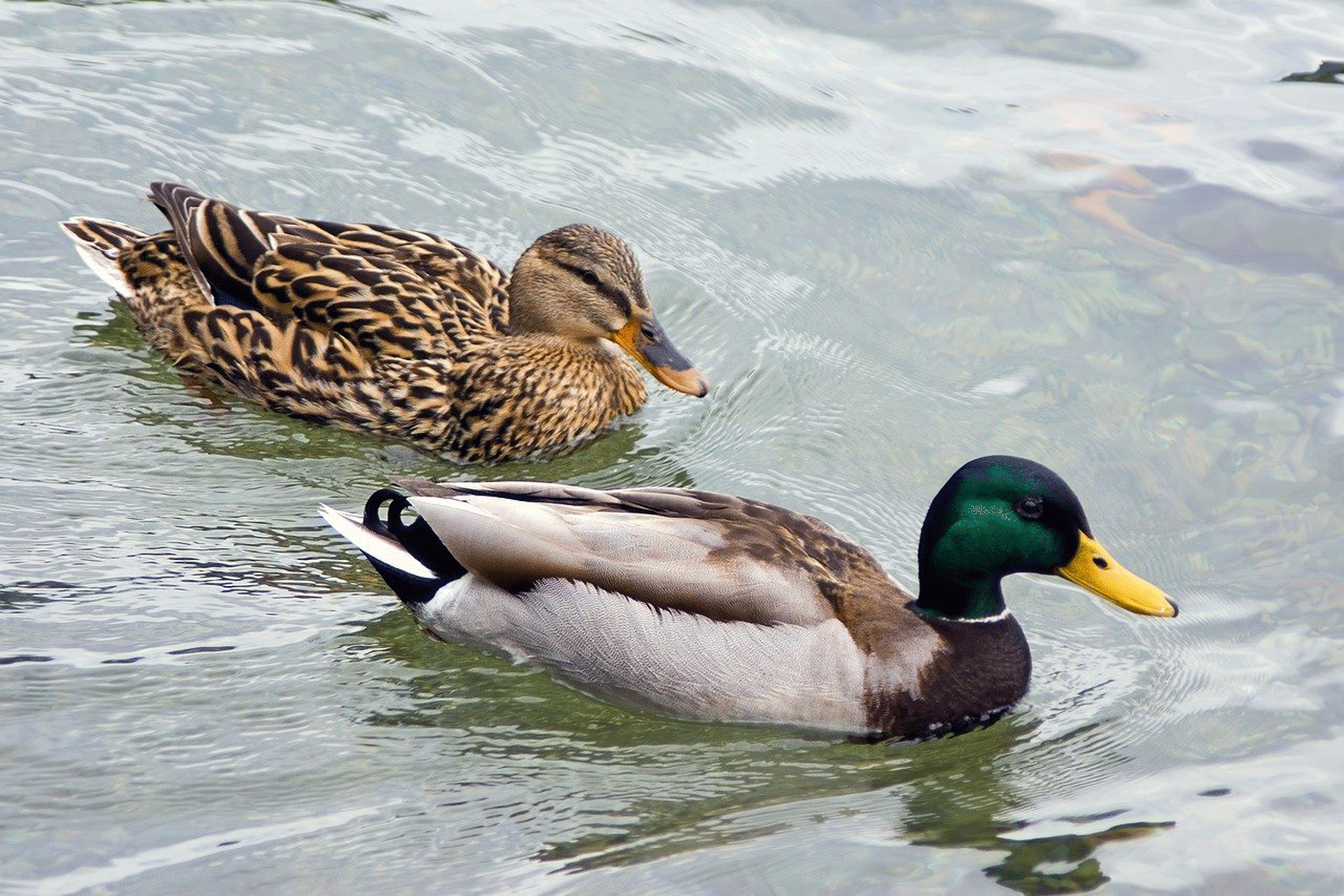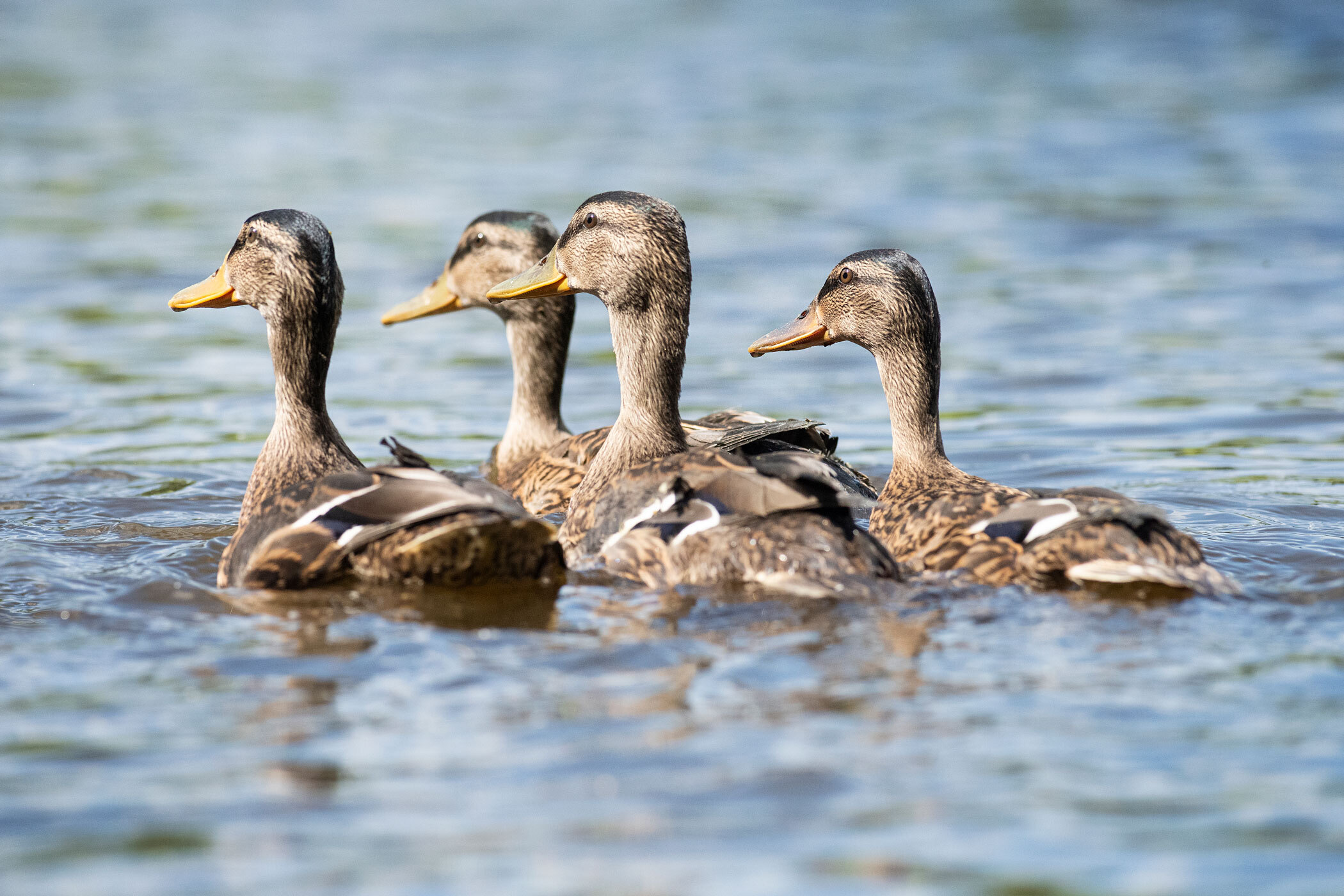
Facts
The UK's most recognised and much loved duck, the mallard has been a firm favourite in our local parks and ponds for decades.
Males can be recognised by their glimmering green-blue head and neck, brown chest, yellow bill and black feathers just above the tail. The females are predominantly a mottled brown.
Length: 55-62cm
Wingspan: 90cm
Weight: 970g-1.2kg
Diet: Omnivorous - Seeds, acorns and berries, plants, insects and shellfish
Average Lifespan: 3 years
When to see them: All year round
UK conservation status: Amber
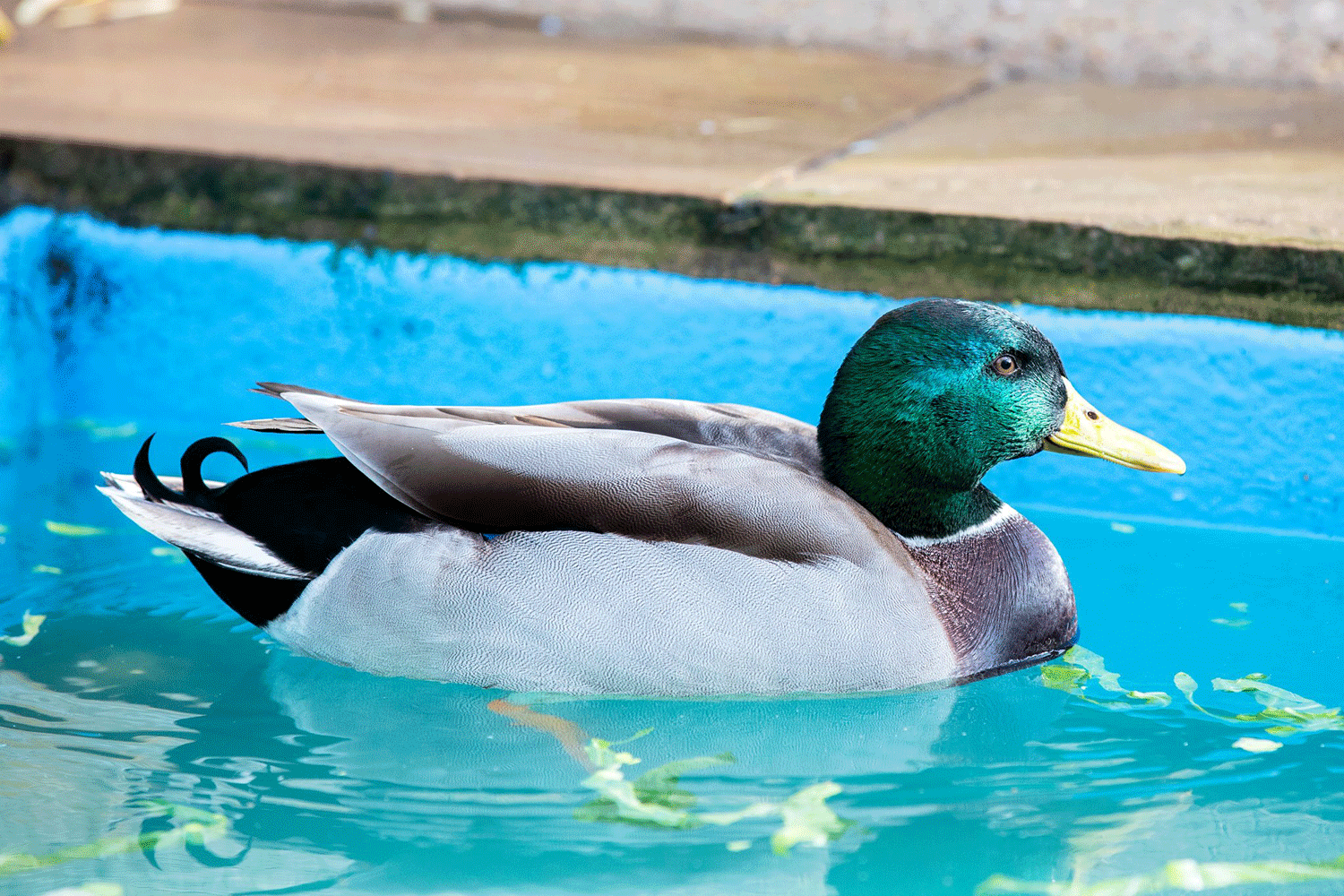
Behaviour
Mallards are often seen dabbling for food near the water's surface, eating invertebrates, fish, amphibians, and plants, also grazing on land, eating grains and vegetation. One of the friendliest waterbirds at local parks and ponds, the mallards have become accustomed to being regularly fed by humans.
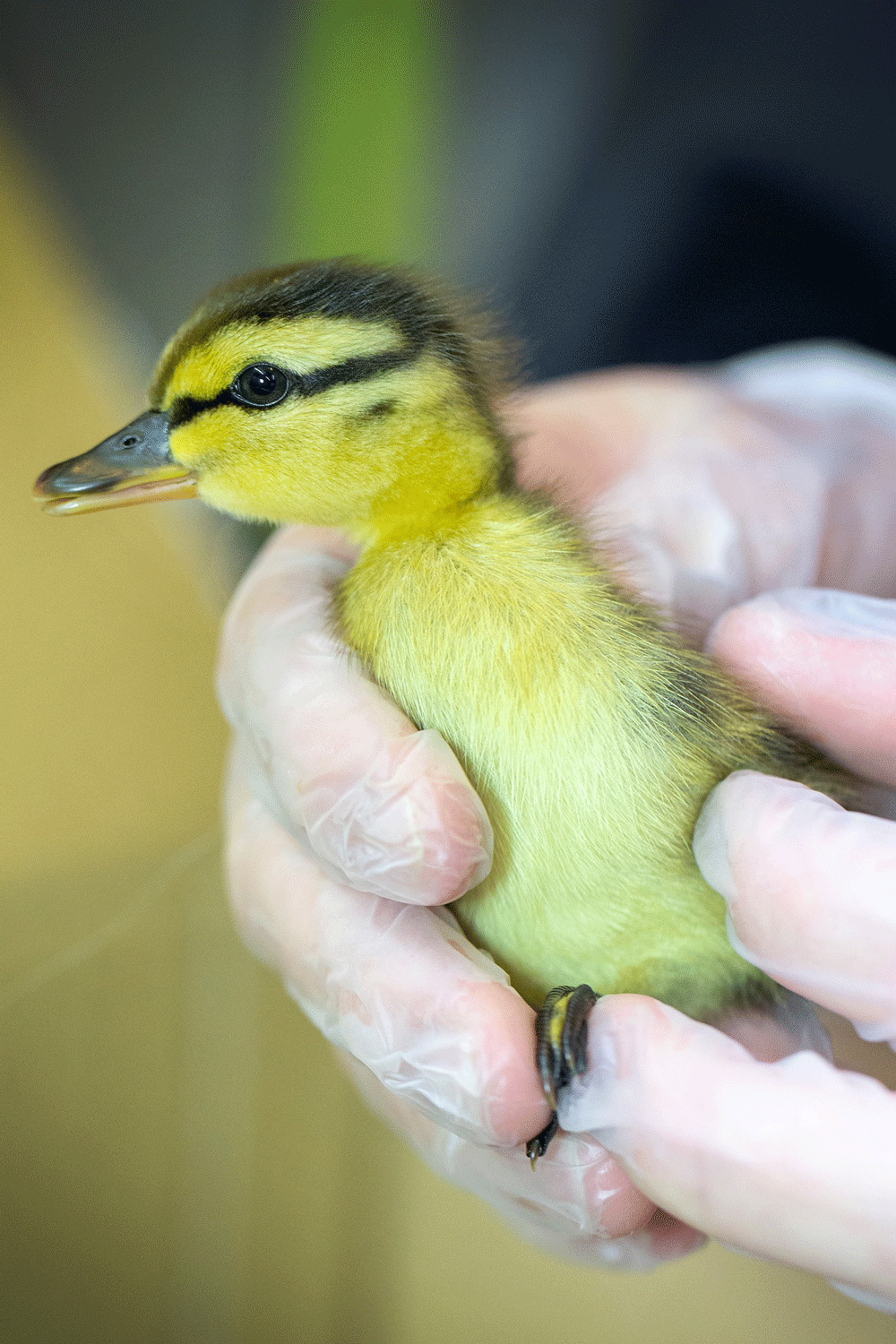
Their Threats
Our winter population of ducks has dropped by an estimated 36% since 1995, whilst no direct cause has been identified, a range of issues effecting mallards include:
Loss of habitat: Particularly the loss of nesting sites. Drainage of wet areas has reduced the amount of wetlands available.
Cruelty: Having become used to people, this can result in in ill-meaning person/s to take advantage of this. We have seen several ducks targeted with catapults.
Fishing line and netting: Discarded angling lines and fishing hooks are common issue for mallards and waterbirds, as they become entangled in them whilst feeding on the water.
Pollution and plastics: Pollution to our waterways has a detrimental effect on waterbirds, with many ducks suffering constriction injuries due to discarded plastics, most commonly, plastic bottle rings.
Nest disturbances: Sadly, Wildlife Aid take in almost a hundred mallard ducklings, every year, as a result of nest disturbances. In these circumstances the mum can abandon her clutch and not return, leaving a nest of very vulnerable ducklings.
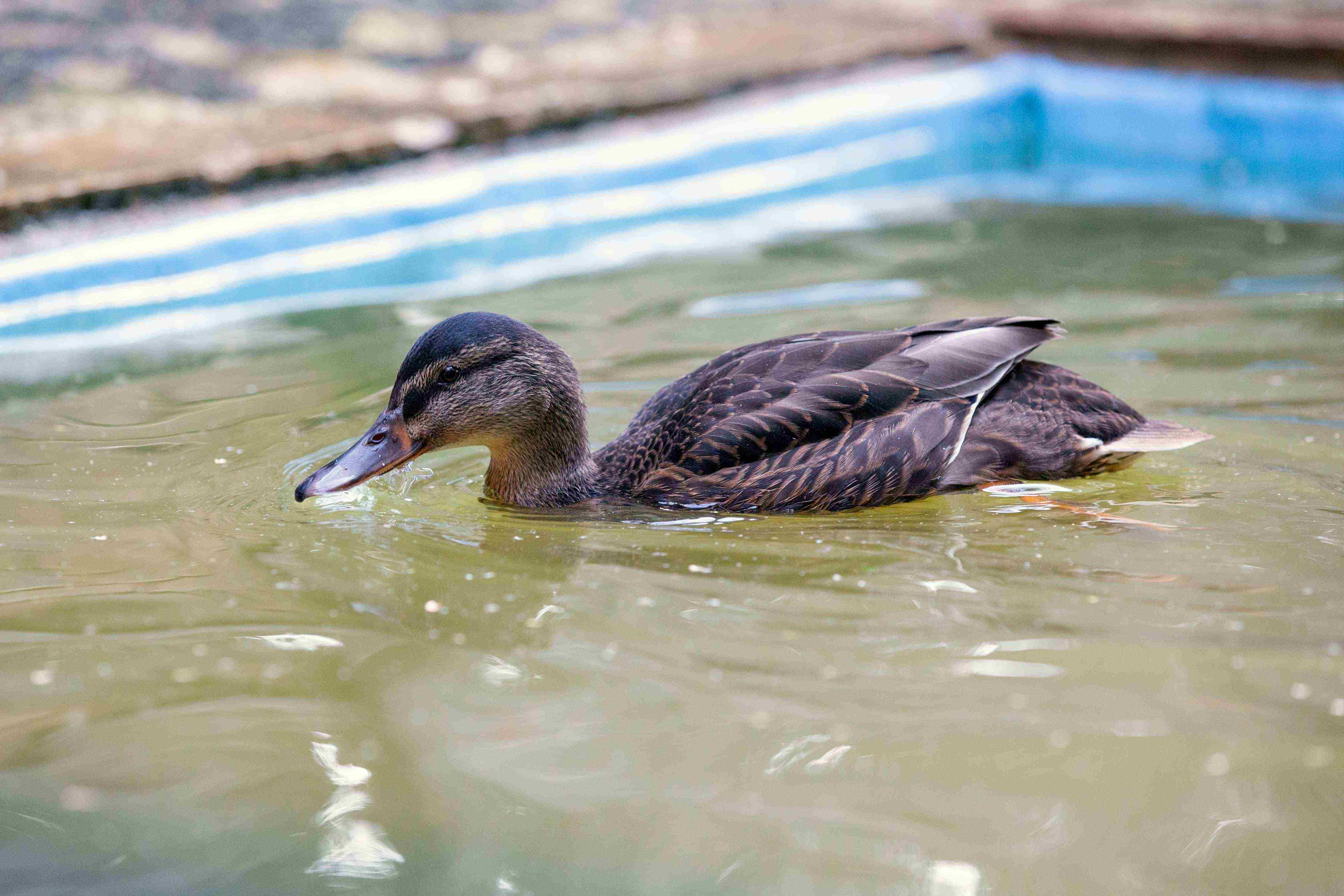
How you can help
There are a number of simple ways you can help Mallards:
> Don't feed bread, it does not provide the right nutrition for waterbirds and can pollute ponds, lakes and rivers. Instead feed grains, lettuce, corn and other greens.
> Keep a note of a local wildlife rescue in case you find an injured mallard or duckling
> Do regular litter picks around your local park to ensure all the resident wildlife can keep safe.
We need your help
Any help you give can make a huge difference and keep us saving wildlife.
